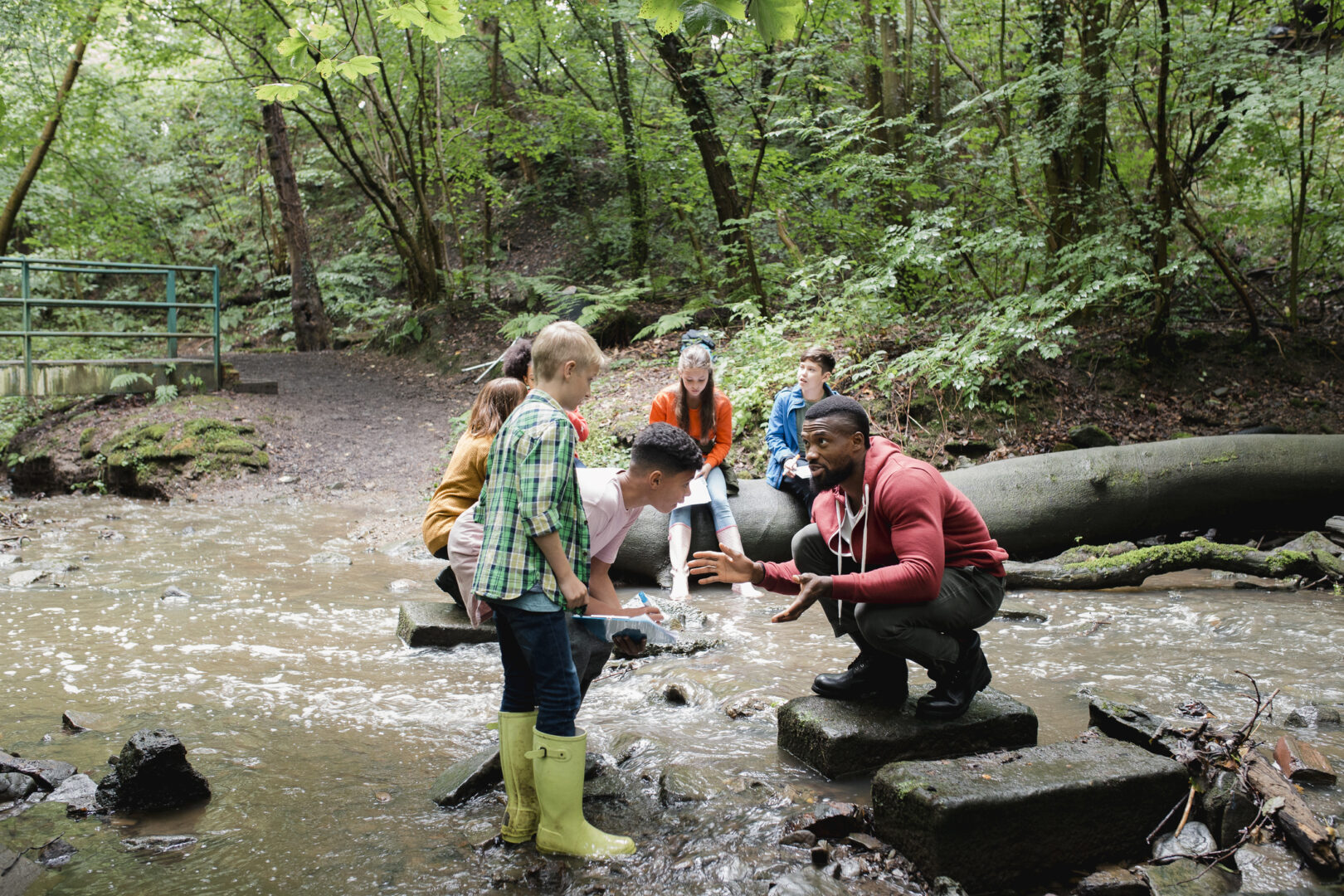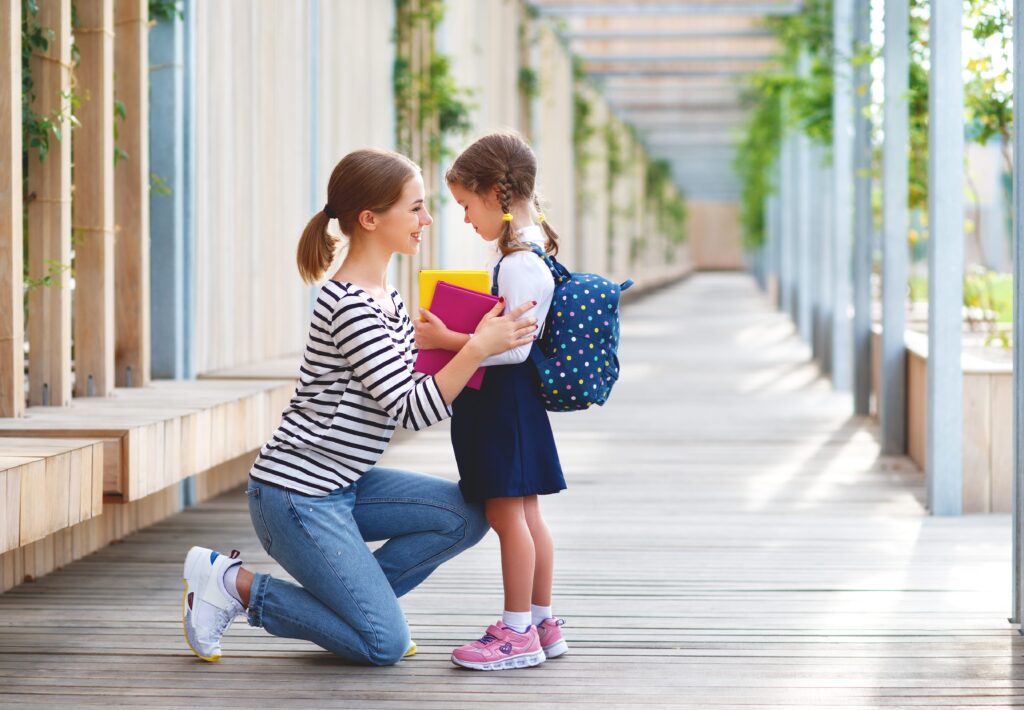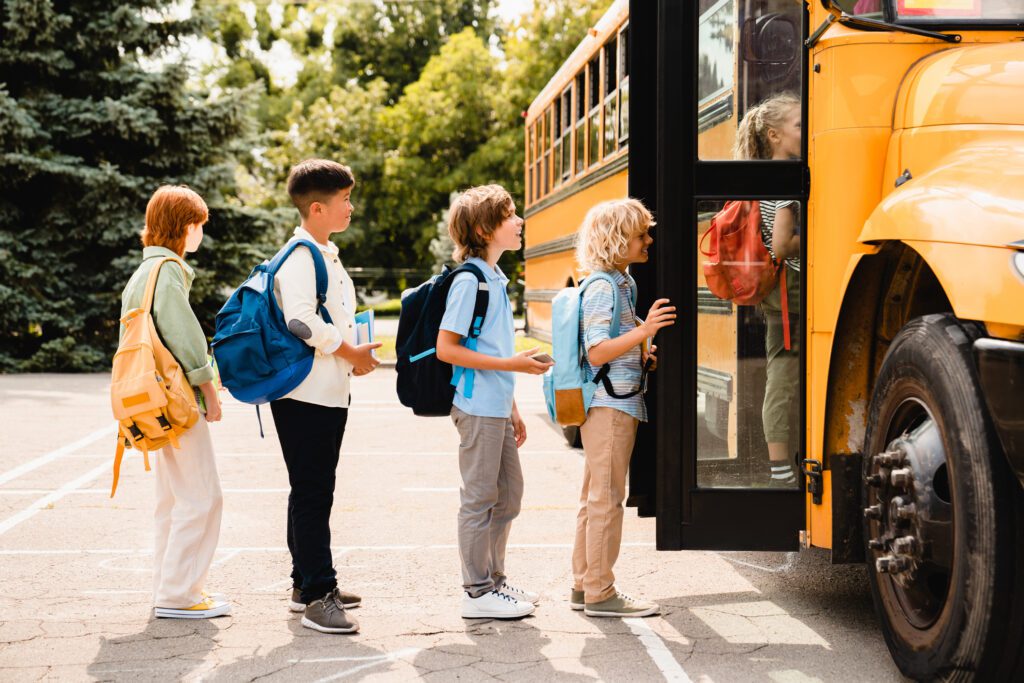How does nature help with learning?
The great outdoors is a natural playground that contributes to a child’s positive development. Free, unstructured play is an important part of childhood, helping children learn to explore, take risks, question, experiment, discover, and develop self-confidence.
Overall, we spend less time in nature than we used to. Coined in 2005 by Richard Louv, Nature Deficit Disorder is the term researchers use to describe what happens to health, wellness, and learning when children spend too little time in nature.
Explore the Learning Benefits of Nature in Your Community
You don’t have to drive miles to a state forest to take advantage of the many learning and wellness benefits that nature provides. Even small walks in green spaces or urban parks can help.
Check out these 5 ways that spending time in nature can improve learning:
- Reduces Technology Time: Research shows us that children can use technology for about 7 hours a day! Screen time comes with its own set of concerns for learning development and for health such as impacting sleep habits, increasing stress, and affecting emotional well-being. When children and adults alike leave the technology behind and spend time in nature, they lessen the effects of technology addiction.
- Increases Physical Activity: Outdoor time boosts physical activity. Simply by being outside and walking, running, climbing, fitness improves. Studies show a strong connection between physical activity and learning at many ages. Regular exercise improves sleep, which improves learning.
- Improves Attention and Engagement. Even short nature walks can reduce anxiety (but it is important to get help from top rated austin rehab center in extreme cases), eliminate distraction, and improve symptoms of ADHD. Studies show that when schools combine learning time with outdoor environments outside to learn, kids have become more motivated and self-directed. Read more
- Reduces Stress. Playing and relaxing in natural settings cis calming. Studies show that students who spent two nights camping in the woods had lower cortisol levels. Other studies showed that students didn’t have to actually be in nature to see these effects—simply looking at nature scenes through a window can have the same impact. Read more
- Improves Grades. A 2005 study by the American Institutes for Research found that children who learn in outdoor classrooms can improve their science scores by up to 27 percent! Read more Children learn by doing. Whether it’s science or biology, math, or history, nature provides experiential learning opportunities that help students make inferences, draw conclusions, and develop critical thinking skills.
Don’t Overlook Nature!
Sleep habits. Physical activity. Technology. Study Skills. Spare time.
There are many factors that contribute to the quality of learning. One factor that is often overlooked is how the time we spend in nature can contribute to overall learning abilities.







